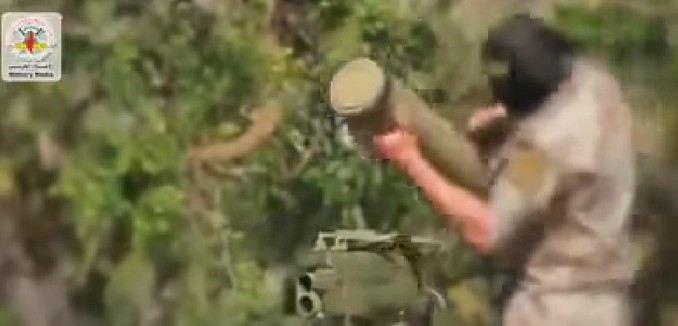Iran is stepping up its offensive against rebels in southern Syria, exacerbating “the tensions on Israel’s northern border,” Jonathan Spyer, director of the Rubin Center, and Benjamin Weinthal, a research fellow at the Foundation for Defense of Democracies, wrote in an analysis published yesterday.
The Iran/Hezbollah/Assad troika has long threatened to develop the Golan as a front for possible “jihad duties” against Israel. Syria is in chaos. The area east of the Israeli-held Golan is precisely the kind of lawless territory from where Iran’s regime and its proxies would find it suitable to launch acts of violence against Israeli communities.
Both Syrian President Bashar Assad and Hezbollah’s leader Hassan Nasrallah, in the course of 2014, made unambiguous public statements threatening the opening of military activity against Israel in this area.
Iranian General Allahdadi, [Jihad] Mughniyeh and the others were in the Golan Heights as part of the effort to make these statements a reality. They were, it appears, in the process of preparing an infrastructure for attacks on Israel. Israel acted to prevent this, but also to send a broad and clear message to Iran/Hezbollah that it would not tolerate the establishment of a second springboard for attacks on Israeli communities, just east of the Quneitra Crossing.
While the offensive has apparently stalled for now, Israel is aware of the threat on its northern border, and due to its “bitter experience” of failed international guarantees, it must rely “only on its own capabilities” in fighting this growing threat.
According to Spyer and Weinthal, Israel needs to tread carefully in facing this growing threat. While Israel may be seeking quiet, it “needs to consider whether accepting Hezbollah’s signal to the UNIFIL may mean that the organization and its backers will now feel emboldened” to continue its aggression against Israel.
Spyer and Weinthal write that Iran’s growing boldness in Syria must be seen as one of a number of theaters in which Iran is playing an larger, destabilizing role.
Iran’s growing role in destabilizing Israel’s borders should debunk any idea that its President Hassan Rouhani is a moderate leader within the Middle East. The Iranian effort to open a ‘second front’ against Israel in the Golan should be seen as part of a larger regional picture in which the Iranians are actively interfering in conflict areas throughout the Middle East – in Iraq, Yemen, Syria, Lebanon, the West Bank/Gaza, and now once again across Israel’s northern border.
[Photo: D Brett / YouTube ]




